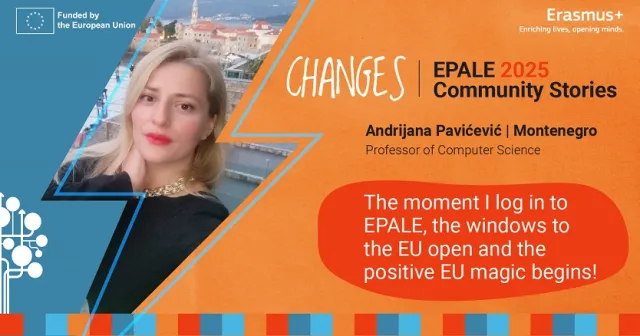EPALE’s 9 top tips for writing blog posts
EPALE is a fast-growing community website where everyone is welcome to share their thoughts and ideas on adult learning. If you’re not a professional blogger but still want to contribute to the platform, these nine top tips are just what you need to write the perfect post.
Choose your angle
The way you focus your story is known as the ‘angle’. There are a number of different angles you can take, but there are broadly three types:
- Commentary – giving a strong view on a subject (e.g. open letter);
- Informative – purely a delivery of information. This could be in the form of an interview, a diary, a how-to or a profile;
- Discussion – a topical discussion assessing a subject, such as a for-and-against argument.
Don’t be afraid to play around with different formats and angles! Creativity is what makes a blog post successful.
Headline is king
Create the headline first, and the main body second. It will keep the blog post tight and to the point, and more likely to get picked up by search engines (e.g. Google).
Here are five golden rules you can follow to make your headlines more attractive:
- Use eight words. Titles with just eight words in the headline getting 20% more clicks (sometimes this is just impossible – but try and keep it below 12!).
- Use lists. Studies have shown that lists with odd numbers get more clicks than even numbers (e.g. ‘Seven ways you can use gamification in your classes’).
- Use ‘how’ and ‘why’ to appeal to readers’ sense of curiosity.
- Appeal to self improvement (e.g. ‘How the new Swedish teaching techniques can improve your lesson planning’).
- Incite ‘fear of missing out’ (e.g. ‘The 17 teaching resources you should know about’).
- Use keywords in the heading to help users find your content. Keywords will help users land on your page straight from a search engine.
Planning makes perfect
Now that you have your headline, you will need to focus your blog post and plan the content you will cover.
Plan your work using bullet points, treating each point as a paragraph:
E.g. ‘How can we engage adult learners?’
- Introduction;
- Value their experience;
- Make learning relevant to their experiences;
- Make the learning active;
- Challenge your learners at different levels;
- Conclusion.
Make sure that you refer back to the headline or question to provide the answer.
Keep a friendly tone
Be casual and friendly. You can use direct speech, such as ‘you’, ‘us’ or ‘we’ to address the reader and give yourself a clear voice in the text. This is especially true for blogging on community sites like EPALE – people should feel like they are talking with a person, not a robot.
Have your audience in mind
Remember the audience you are trying to reach. EPALE is a community site, which means its primary audience is the people that most visit the site. The target audiences are:
- Adult learning providers: teachers, trainers, volunteers;
- Academics, students, researchers in andragogy;
- National adult learning infrastructure, networks and organisations;
- Projects and partnerships funded/seeking funding;
- Policy-makers (national and European) who can learn from good practice in national and transnational activity;
- Media professionals with adult learning specialisms.
It’s impossible to reach all groups, but if you keep the language neutral, and keep accessibility in mind, it will be less likely to exclude certain groups.
Size matters
- Blogs should be 400-650 words;
- Keep paragraphs short – big blocks of text are difficult to read online;
- Use pictures and crossheads to break up text.
Blog lengths can be affected by structure, so think about what it’s going to look like before you start writing.
Call to Action (CTA)
A CTA will encourage users to engage further with the post. Ask readers for questions for their opinion on your controversial topic, or to suggest their own topics for you to write about. Just one comment on your post will encourage others to join in.
Find a fresh pair of eyes
- Always check for spelling and grammar errors in a proofread – this should preferably be done by someone other than the author;
- Check for colloquialisms, by getting a non-native speaker to check your work.
Mind your language
- Be aware of making any defamatory comments in your work.
- Never express something as an opinion that could be misunderstood or misconstrued as fact.
- If you are making an opinion-based commentary, or a guest blogger is, make it absolutely clear in the text that it is based on opinion, either by stating it in the text, putting it in the headline (or both).
If in doubt, take it out!
To submit a blog post for publishing on EPALE (in any of the official EU languages) go to the Blog section and click on Suggest a blog post.




